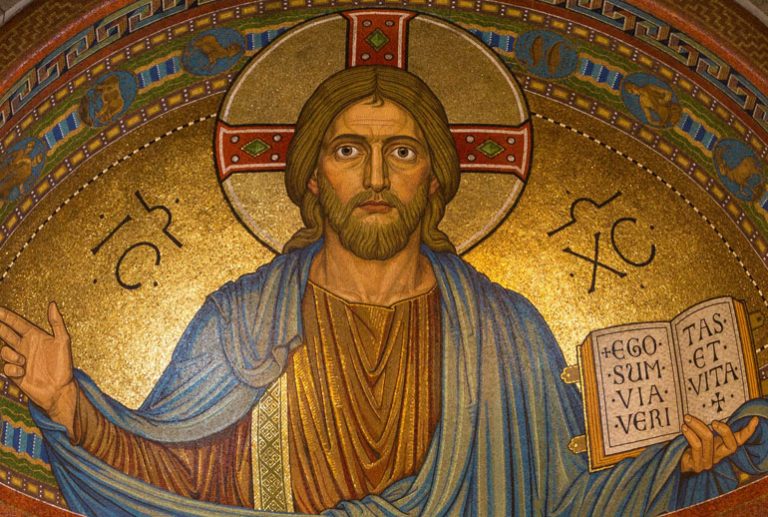After Moses left behind his adoptive royal family and fled the land of Egypt, he sought refuge in the region of Midian. There, he met Zipporah, the daughter of Jethro, whom he later married. In that land, Moses took on the humble task of tending sheep, caring for the flocks of his father-in-law.
Forty years later, while tending the flock on Mount Horeb, he saw a strange sight: a bush that burned but was not consumed. As he approached, a voice called his name and told him to remove his sandals, for the ground he was standing on was holy. The voice identified itself as the God of his ancestors—the God of Abraham, Isaac, and Jacob—and entrusted him with a mission: to lead the people of Israel out of Egypt and bring them to the land of freedom.
Before accepting the mission, Moses—like one who needs to be sure of all the details—posed a final, crucial question:
But, said Moses to God, “when I go to the Israelites and say to them, ‘The God of your ancestors has sent me to you,’ they may ask me, ‘What is his name?’ What then shall I say to them? (Exodus 3:13)
Moses, who had lived in a culture that worshiped many gods—the gods of the sun, fire, moon, and death—wanted to know which God was sending him. Among so many deities, who was this one? The reply came:
I AM WHO I AM. This is what you are to say to the Israelites: ‘i am has sent me to you.’ (Exodus 3:14)
Some translations render it: “I AM THAT I AM.” Others phrase it as “The ONE WHO IS.”
What God gave Moses was not a name in the way we understand names—like “chair,” “moon,” “Carlos,” or even the names of Egyptian deities such as Ra (god of the sun), Amun (king of the gods), Thoth (god of the moon), or Hathor (goddess of love and joy). “I AM” was not a name—it was a revelation of His nature: He IS.
This declaration points not to what God does, but to who God is—existence itself.
So, how are we to refer to Him if He did not give a proper name?
In ancient Hebrew, vowels were not written, only consonants. The name revealed in the Pentateuch appears as the four consonants: Yod–Heh–Vav–Heh (יהוה), which was pronounced as Yahweh (Iahuéj).
When translated into Latin, these letters became yhwh, and later, in English, the form Yahweh was used.
In the Middle Ages, the Masorete Jews (who replaced the scribes of Jesus’ time) took the vowels from the words Elohin, meaning “Mighty God,” and Edonay, meaning “The Lord,” and mixed them with Yahweh.
From this combination came the hybrid word YeHoWiH, which later evolved into Jehovah, a form adopted in many Protestant Bible translations to refer to God.
But it is important to remember: These are names created by human beings. They are not the revealed name of God.







